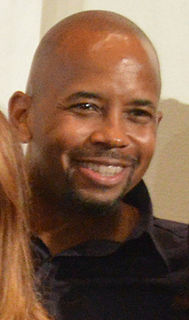A Quote by Michelle Paver
My novel 'Wolf Brother' is set in northern Scandinavia during the late Stone Age, so I was aware from the start of Norse influences. I used some Norse names, and the soul-eater Thiazzi is based on the Norse storm giant, Thiassi.
Related Quotes
I can make some calls. There is a guy. Dagfinn Heyerdahl. He used to be with Norse Heritage Foundation." Norse Heritage Foundation wasn't so much about heritage as it was about viking, in the most cliché sense of the world. They drank huge quantities of beer, they brawled, and they wore horned helmets despite all historical evidence to the contrary. "Used to be?" Curran asked. "They kicked him out for being drunk and violent." Curran blinked. "The Norse Heritage?" "Mhm." "Don't you have to be drunk and violent just to get in?" he asked. "Just how disorderly did he get?
I had been a reader of THOR in college. I had read the Stan Lee and Jack Kirby stuff. I had loved it. I had been a Norse mythology fan since I was a kid and was thrilled to discover a comic that was kind of based on Norse mythology-there's not a one-to-one correspondence, but there's no reason there should be. I was delighted to find it, and I didn't care that it wasn't exactly the myth. For one thing, Thor didn't have red hair in the comics. I was fine with that.
In the ninth and tenth centuries the Vikings invaded Britain from Scandinavia and settled in large numbers. Their language, which we call Old Norse, was at least partly comprehensible to the English, who did not hesitate to take over hundreds of words from it: skirt, window, scrub, sky, give, hit, kick, scatter, scrape, skill, scowl, score, fellow, want, skin, knife, law, happy, ugly, wrong and even the pronouns they and them.






































